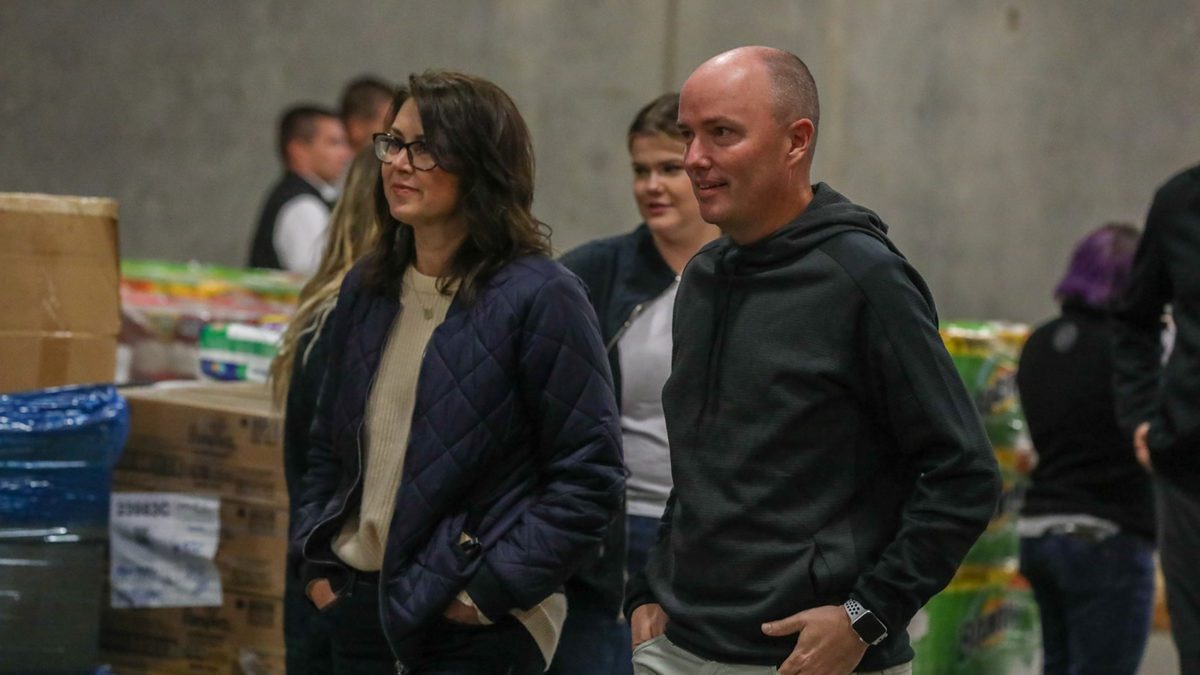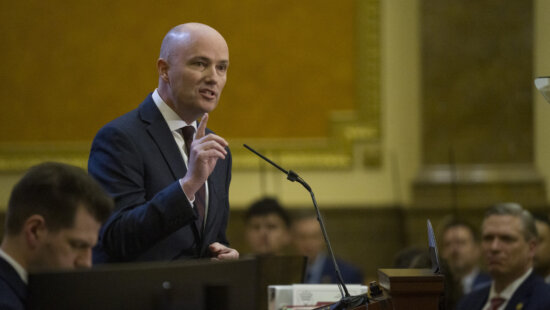Politics
Gov. Cox, local governments reach agreement on additional homeless services

On Monday, Utah Governor and Lieutenant Governor partnered with The Hispanic Star, P&G, and the Utah Food Bank as a service project. Photo: Utah State Office of the Governor
SALT LAKE CITY – Governor Cox reached and announced an agreement with local governments on how to respond to homelessness throughout the state, in addition to an agreement on providing more services for Utah’s homeless population.
These agreements will be included in Gov. Cox and Lt. Gov. Henderson’s recommendations to the state legislature for the Fiscal year 2025 budget, which will be released Tuesday, Dec. 5.
The recommendations comprise “transformational investments to support a statewide approach to alleviate homelessness.” The three focus areas in Gov. Cox’s recommendations are stabilizing emergency shelters, expanding behavioral health care, and prioritizing prevention.
“After months of analyzing our collective response to homeless services, we’re doing many things well, but we’ve also found gaps in the system. Our budget priorities will address these gaps,” said Gov. Cox.
The existing emergency shelter system lacks sufficient beds, with the majority of shelters in Salt Lake County consistently reaching full capacity each night. Governor Cox has proposed allocating $128 million to enhance the stability of the current emergency shelter system and offer assistance for expanding shelter alternatives.
Additional proposed initiatives include investing in homeless prevention and enhancing resources to facilitate improved connections between individuals dealing with mental health and substance use disorders and comprehensive support services.
The recommendations encompass a one-time investment of $10 million and an ongoing allocation of $641,000 to establish a HOME Court—a viable alternative to the criminal justice system redirecting individuals towards treatment services.
Lastly, in response to deficiencies in Utah’s behavioral health workforce, Gov. Cox has proposed an $8 million initiative.
This initiative aims to create avenues for paid internships, offer loan forgiveness and incentives for those pursuing training in the behavioral health sector, establish an extra rural receiving center, deploy two additional mobile crisis teams, enhance opportunities for behavioral health licensing, and allocate staff resources for the Atherton Community Treatment Center.
“I’m grateful for the collaboration between state and local officials as well as civic leaders to join together and find solutions that will improve the lives of our unsheltered individuals and families,” Gov. Cox said.

















